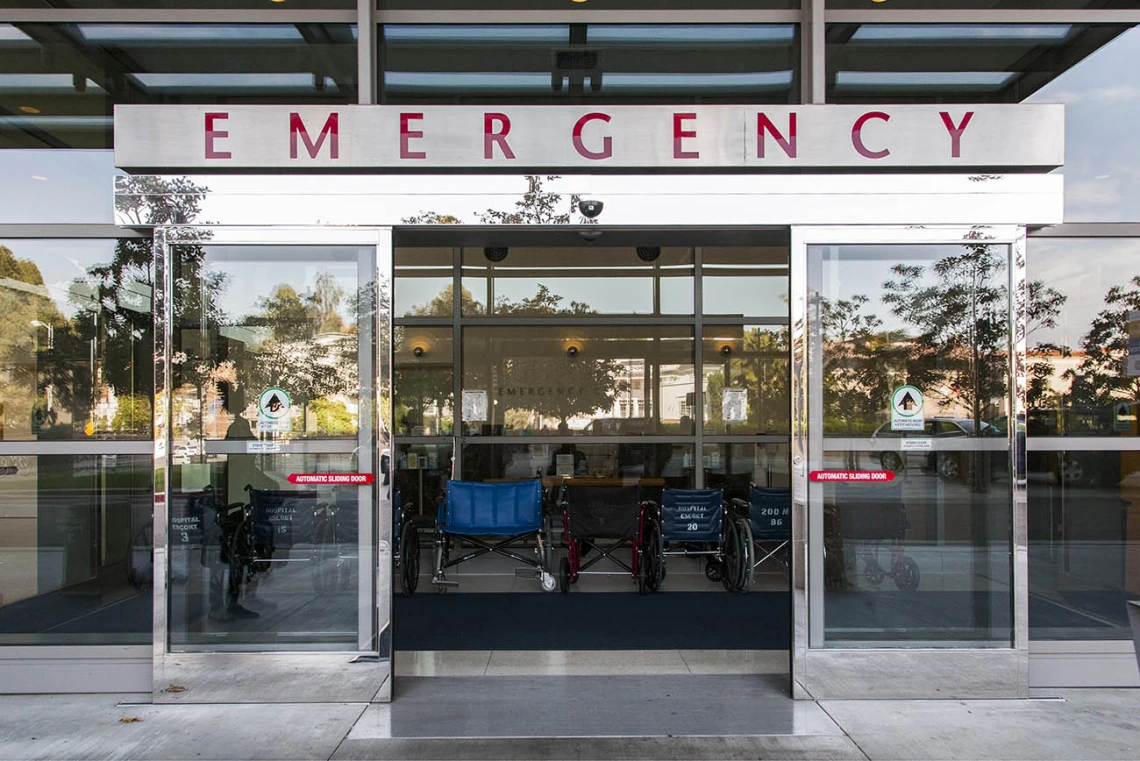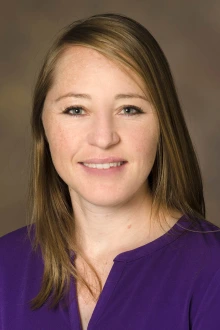Tucson Researchers, Physicians to Participate in National Study to Standardize Pediatric Seizure Care
The study aims to decrease the number of pediatric patients arriving at the emergency department with an active seizure.

Researchers in the University of Arizona College of Medicine – Tucson's Arizona Emergency Medicine Research Center are participating in a nationwide, multicenter clinical trial to standardize treatment for children suffering from seizures before they arrive at hospital emergency departments.

Joshua Gaither, MD, professor of emergency medicine, is leading the Tucson site of the Pediatric Dose Optimization for Seizures in EMS study.
“By replacing complicated dose calculations with age-based standardized dosing, we hope to increase the number of children who receive the right amount of seizure-stopping treatment before arriving at the hospital,” said Dr. Gaither, who is director of the Department of Emergency Medicine's EMS fellowship program and medical director of the Tucson Fire Department. “The purpose of the study is to develop a standardized method for paramedics to administer seizure medication to children suffering from seizures that leads to timely delivery of the right dose.”
Seizures in children are potentially life-threatening and one of the most common reasons people call emergency medical services. Stopping a seizure quickly is essential to prevent brain damage, respiratory failure and death.
Research shows it is harder to stop a prolonged seizure, so timely treatment with midazolam, a proven medication for pediatric seizures that do not stop on their own, is important. Currently, EMS agencies have various methods of selecting the appropriate dose and delivery of medication to treat an active seizure, which can delay administering effective treatment. As a result, one-third of children transported by EMS arrive in the emergency department with an active seizure.
The PediDOSE study will take place in 20 urban areas including the Tucson metropolitan area, where Dr. Gaither will collaborate with researchers and health care professionals at Banner Diamond Children’s Hospital, the Tucson Fire Department and the Northwest Fire District.
Beginning in September, children ages 6 months to 13 years who are actively seizing in the presence of a paramedic within the Tucson metropolitan area will be transported to area hospitals under the new PediDOSE study protocol.

Amber Rice, MD, is an assistant professor in the Department of Emergency Medicine and medical director for the Northwest Fire District.
Upon arrival at the emergency department, eligible patients will be outfitted with an RR-EEG device, a non-invasive headband used to monitor and collect data for ongoing seizure activity. The data will be analyzed to develop simplified protocols to improve pediatric patient outcomes in the future and evaluate the safety of medications used to treat pediatric seizures.
Because seizures require immediate treatment, in most cases there will not be time to ask parents for permission to enroll their child in the study. Therefore, eligible patients will be enrolled in the PediDOSE study under the Food and Drug Administration’s exception from informed consent (EFIC) requirements for emergency research (21 CFR 50.24).
EFIC rules allow research studies in certain emergency situations to be conducted without consent. These special rules can be used only when the person’s life is at risk, the best treatment is not known, the study might help the person, and it is not possible to obtain informed consent from the patient or a legally authorized representative. Parents will be notified after their child is enrolled and can opt out of further participation.
Before researchers can start a study using EFIC, they must provide information about the study and invite community members to provide feedback. To read more about this study, visit the PediDose study website or contact the study team at pedidose@arizona.edu. To complete an online, anonymous survey about the PediDOSE study and research that uses EFIC, visit redcap.utahdcc.org/redcap/surveys/?s=HPHKPDJM39.
The PediDOSE clinical trial is conducted through the Pediatric Emergency Care Applied Research Network and its affiliated EMS agencies and children’s hospitals. Texas Children’s Hospital in Houston is leading the nationwide study funded by the National Institute of Neurological Disorders and Stroke, a division of the National Institutes of Health. Amber Rice, MD, assistant professor in the Department of Emergency Medicine and medical director for the Northwest Fire District, will be serving the Tucson-area project as co-investigator.
This study is supported by the National Institute of Neurological Disorders and Stroke, a division of the National Institutes of Health (7000001489/1U01NS114042-01A1).
Contact
Jo Barkley
520-260-6688
jgellerm@arizona.edu
Margarita Bauza
313-520-2109
mbauza@arizona.edu

